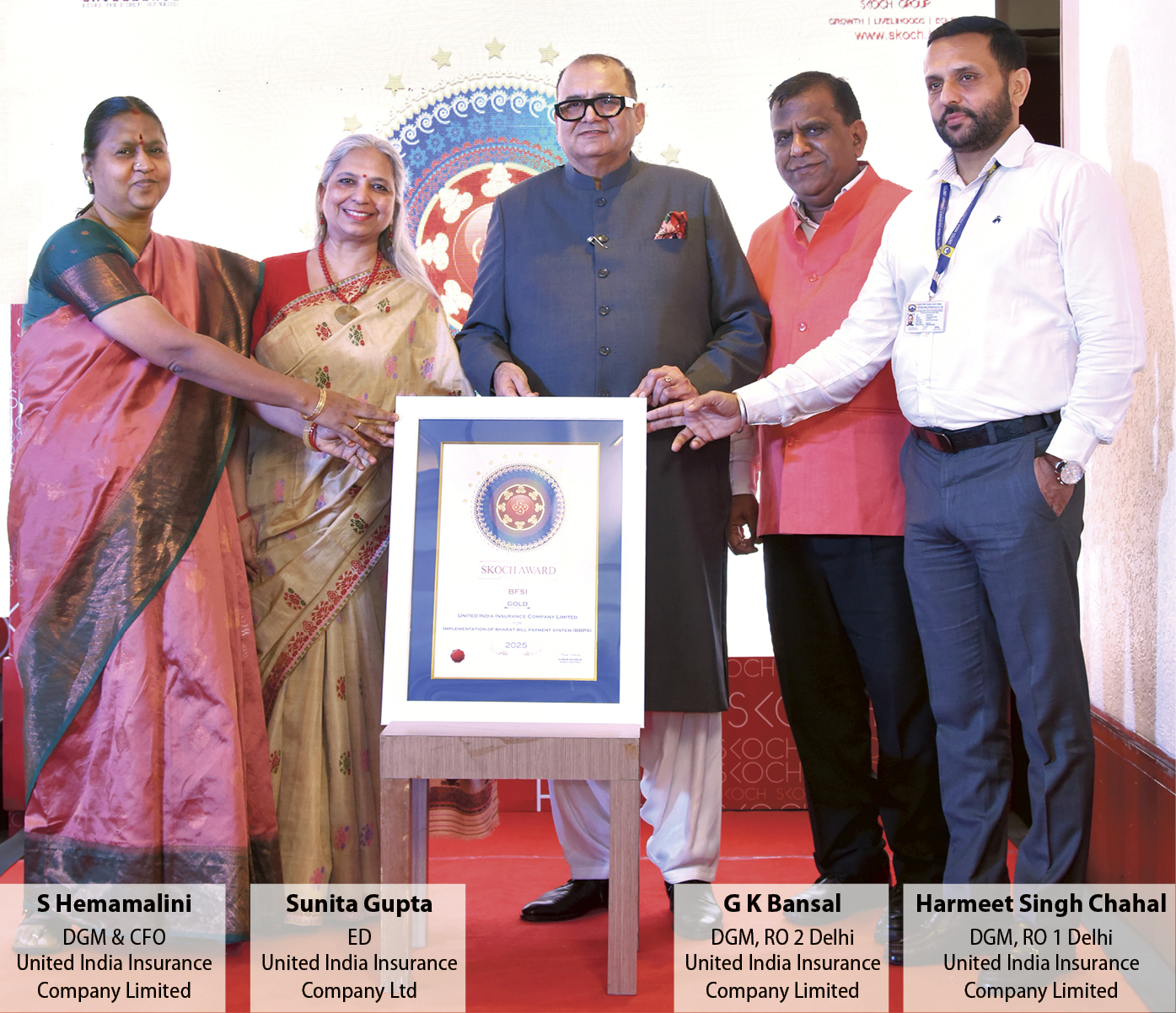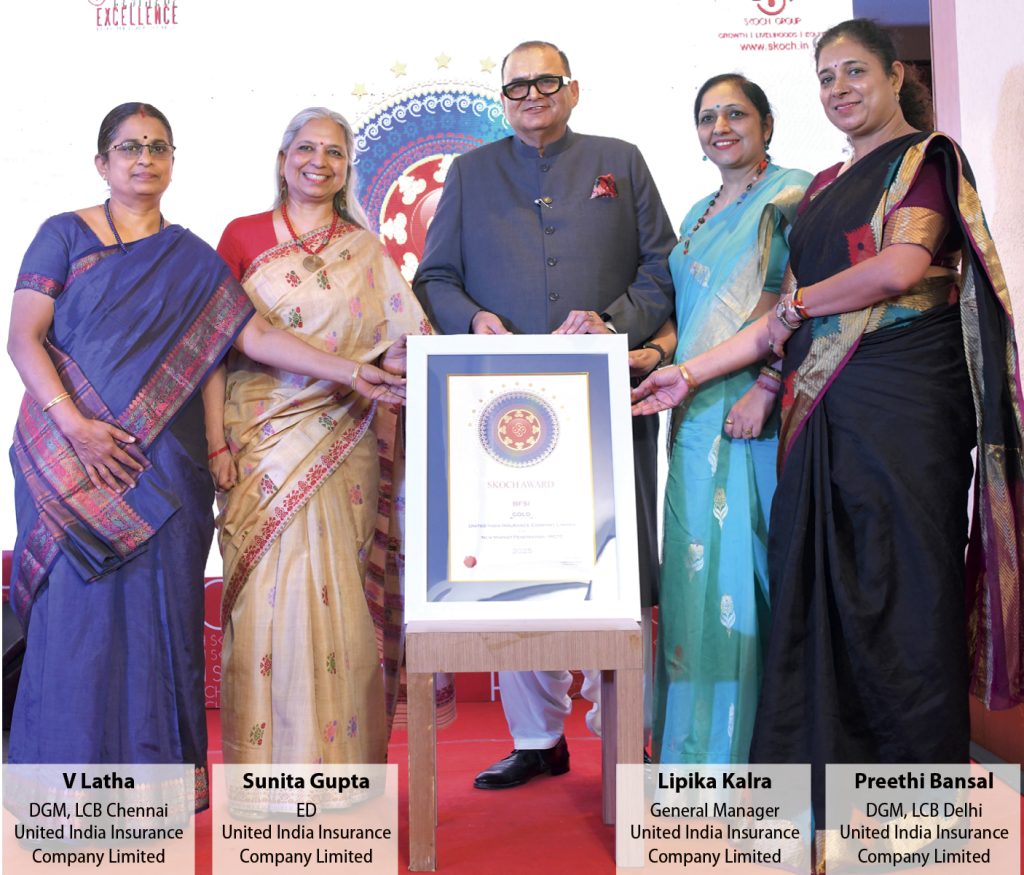The introduction of the Bharat Bill Payment System (BBPS) marked a turning point. The goal was ambitious yet clear: to unify all bill payments under a single, interoperable digital platform that would simplify processes for both customers and service agents.

Before the digital leap, the process of bill payment and premium collection was far from seamless. Customers often faced fragmented systems—different portals for different billers, delayed confirmations and limited accessibility in rural areas. Agents and employees managed complex reconciliations, spending valuable time resolving mismatches and waiting for settlements. For an organisation serving millions across India, this inefficiency was more than an operational issue—it was a barrier to customer satisfaction and inclusion.
The introduction of the Bharat Bill Payment System (BBPS) marked a turning point. The goal was ambitious yet clear: to unify all bill payments under a single, interoperable digital platform that would simplify processes for both customers and service agents. The project aimed to bring transparency, speed and reliability to every transaction while supporting the larger mission of financial inclusion.
The transformation began with meticulous planning and requirement analysis. Objectives were defined—to increase digital payment adoption, empower agents with efficient tools and reduce reconciliation errors. Integration with the National Payments Corporation of India’s BBPS Central Unit was completed through secure APIs, enabling real-time bill fetching, payment processing and settlement. Compliance with regulatory standards under RBI and NPCI guidelines was prioritised to ensure security, transparency and trust.
The deployment process demanded persistence. Technical integration was complex, testing and certification required multiple rounds and ensuring data protection and grievance redressal readiness added to the challenge. Yet, through rigorous coordination, training and phased rollout, the system came to life.
When BBPS went live, the impact was immediate and measurable. Over 10,000 external beneficiaries— customers, agents and service partners—experienced smoother, faster and more reliable transactions. Employees have benefited from reduced workload, automated reconciliations and real-time data access. Payments that once took days to confirm were now validated in seconds. Customers received instant receipts and could pay through authorised agents or digital channels with confidence. For agents, the platform opened new opportunities to serve both urban and rural customers, eliminating dependency on cash-based systems and expanding their reach.
The operational benefits were equally significant. The automated reconciliation and reporting features reduced errors and administrative costs, while real-time transaction visibility improved monitoring and decision-making. The enhanced efficiency translated directly into better customer experience—quicker service turnaround, fewer disputes and a transparent digital trail for every transaction.
Beyond numbers, the initiative’s true impact lies in accessibility and empowerment.

Before this initiative, insurance coverage for railway passengers was limited, often fragmented and largely dependent on offline processes. Millions travelled daily without any form of financial protection in case of accidents, leaving families vulnerable and claims cumbersome. For a public sector insurer with a long tradition of service, this gap represented both a challenge and an opportunity—to bring safety, reliability and inclusion into one of the most common experiences in India: train travel.
In 2024, UIIC took a decisive step by partnering with the Indian Railway Catering and Tourism Corporation (IRCTC) to introduce real-time, optional travel insurance for e-ticket passengers. It became the only public sector insurance company to be empanelled in IRCTC’s Optional Travel Insurance Scheme—a major leap in digital integration and public outreach.
The initiative aimed to provide instant, affordable and comprehensive coverage to passengers booking tickets online. At a nominal premium, travellers could insure themselves against accidental death, disability, hospitalisation expenses and transportation of mortal remains—offering protection up to ₹10 lakh per person. What made this effort transformative was not just the scope of coverage, but the way it was implemented.
The project’s backbone was a robust Application Programming Interface (API) designed and developed from scratch to integrate seamlessly with IRCTC’s ticketing system. This meant that the insurance certificate was generated instantly at the time of ticket booking, with policy details sent to passengers via SMS and email. For customers, this brought an unprecedented level of convenience and confidence; for the insurer, it opened access to an entirely new market segment.
The integration, launched in February 2024, was executed under tight deadlines. A pilot in April ensured flawless operation before the official go-live in May. The process demanded precision, as it involved large- scale data handling and round-the-clock system performance. Challenges such as certificate generation during peak Tatkal booking hours, maintaining server uptime and ensuring secure real-time processing were addressed through meticulous testing and a dedicated centralised claims and IT support team.
The results were remarkable. Within months, the initiative scaled dramatically—covering nearly 50 million beneficiaries and supported internally by a core team of 20 employees. The system now issues over 10 million policies every month, making it one of the world’s largest real-time travel insurance operations. The solution also passed IRCTC’s vulnerability assessment and penetration testing, reinforcing its credibility and technological strength.
The benefits extended far beyond numbers. Passengers gained immediate access to affordable protection and a simplified claims process, available both online and offline.
In an era defined by speed, security, and seamless service, United India Insurance Co Ltd has emerged as a frontrunner in digital innovation. The company’s implementation of Dynamic QR Code (DQR) integration with Point of Sale (PoS) systems marks a historic milestone—not only for itself but also for India’s public sector insurance ecosystem. As the first PSU general insurer to embrace such a transformation, this initiative redefines how premiums are collected and reconciled, bringing transparency and efficiency to every transaction.
The challenge before the organisation was rooted in the limitations of static QR codes. Traditional systems could not adapt to customer-specific transactions, nor could they provide real-time insights. Manual data entry created bottlenecks, introducing delays and errors, while security concerns hovered over every payment. These inefficiencies were not merely operational—they shaped the customer experience and the institution’s ability to stay agile in a fast-evolving digital landscape.
The new Dynamic QR system changed this narrative entirely. Each transaction now generates a unique, time- bound QR code that ensures accuracy, traceability and security. Integrated seamlessly with PoS systems and banking networks, this innovation eliminates the need for manual intervention and opens the door to automated reconciliation and instant reporting. The result is a fully digitised premium collection ecosystem—swift, reliable and secure.
For customers, the impact has been profound. Payments can be completed effortlessly through smartphones, even in remote locations. For internal teams, real-time dashboards provide instant visibility into transaction data, enabling faster decision-making and reducing administrative burden. What was once a routine payment process has now become a streamlined, data-driven experience benefiting both the insurer and its policyholders.
The journey was not without its challenges. Training staff, ensuring compatibility with legacy systems and implementing robust cybersecurity protocols demanded persistence and teamwork. Yet, these efforts laid the foundation for a future-ready digital infrastructure that aligns perfectly with the organisation’s broader transformation goals.
The DQR-PoS integration is more than a technological upgrade—it is a symbol of adaptability and forward thinking. Scalable across branches and easily replicable across partner touchpoints, it demonstrates how innovation can drive inclusion, efficiency and trust. In embracing this evolution, United India Insurance has set a new benchmark for the insurance industry, proving that progress begins with a single scan—and a vision to do things smarter.
It provides for real-time tracking of transaction updates, operational efficiency and it also aligns with digital transformation goals and modern consumer expectations for fast, tech-driven services.
Commissioned on 30 April 2024, the project has an annual generation potential of 58.1 million units with a capacity utilisation factor of 26.53 percent.
Solid waste management was among the most pressing issues. Years of unsegregated garbage posed health and environmental risks.
Affordable Housing by Private Developers on Private Land Uttarakhand Awas Evam Vikas Parishady
eASE App: Transforming Urban Governance Uttarakhand Housing and Urban Development Authority
"American roads are good not because America..
State Rankings Highlights -: Odisha scaled to number..
In the run-up to the elections, the most..
Step 1: Call for Project Submission Call for..

Inclusion is the first magazine dedicated to exploring issues at the intersection of development agendas and digital, financial and social inclusion. The magazine makes complex policy analyses accessible for a diverse audience of policymakers, administrators, civil society and academicians. Grassroots-focused, outcome-oriented analysis is the cornerstone of the work done at Inclusion.
